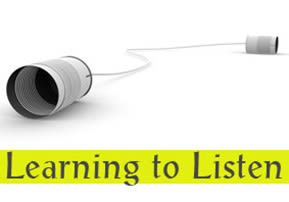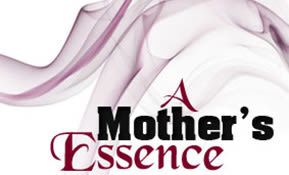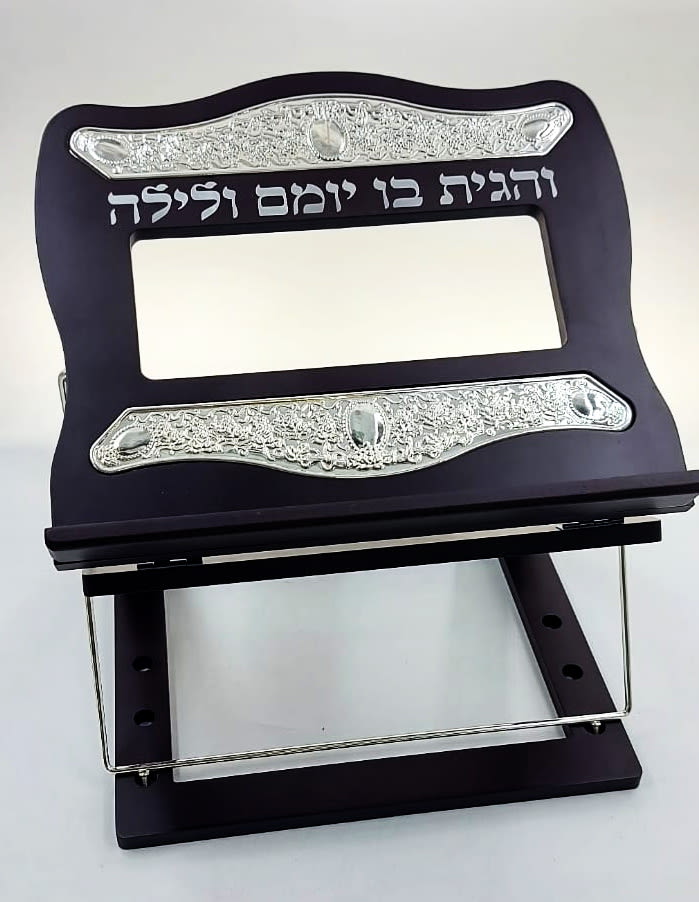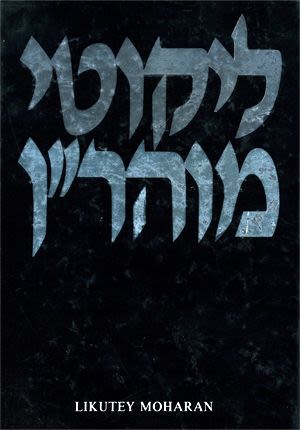
Vayelech: Learning to Listen
Active listening is more than just a skill; it's a matter of attitude. In order to hear the message, we must be present in body and mind, concentrate, and stop other tasks…

PARSHAT VAYELECH
THE MITZVAH OF HAKHEL
Parashat Vayelech includes the mitzvah of hakhel requiring all the Jewish people to gather together in the place Hashem had chosen, (Yerushalayim), at the end of every seven-year shemittah cycle. “Gather (hakhel) the people together, men, and women, and children, and your convert…”(Devarim 31:12) Rambam describes the mitzvah of hakhel as follows: During the night following the first holiday of Sukkoth, all the men, women, children and converts would assemble at the women's courtyard of the Temple. They would hear select parts of the Torah from the book of Devarim read aloud by the king. These parts included the two first paragraphs of the Shema Yisrael prayer as well as the blessings and the curses in Parashat Kitavo (hilchot Chagiga, chapter 3). According to Sefer Hachinuch since Torah is “our essence, praise and splendor,” it is fitting that men, women and children should gather together at specific times in order to hear her words. The experience of this great gathering would reverberate through the entire people, filling their hearts with desire for the Torah and making them learn to know G-d as it states: “that they may learn, and fear Hashem your G-d, and observe to do all the words of this law” (Devarim 31:12).
BRINGING THE LESSONS OF SHEMITTAH HOME
According to Rabbi Menachem Mendel Shneerson of Lubavitch, hakhel takes place at the end of the shemittah cycle in order that the lessons learned from keeping the laws of shemittah should spill over into the coming years. The selected Torah paragraphs read during hakhel help inculcate into our very nature the main lesson of shemittah: that G-d is in charge of the world. When we understand that everything that we possess belongs to G-d, we can accept the Torah covenant, including the sections describing the blessings and the curses.
What is the connection between shemittah and the holiday of Sukkoth? The laws of shemittah decrease the gap between the rich and the poor, since no one has ownership over the produce of his field, and all monetary debts are released. This causes brotherhood and peace among Israel, as does dwelling in our temporary booths during Sukkoth. Unity opens the hearts of Israel to absorb the lessons of the Torah. Therefore, all of Israel unifies on Sukkoth, following the shemittah year, to hear the king read selected sections from the Torah aloud (Kli Yakar).
UNITY, LOVE AND EQUALITY
Rabbeinu Bachaya explains that although people have different levels of intelligence and comprehension, each segment of society practices the laws that apply individually to them. The Torah addresses us all equally, including the child, the youth, and the advanced in years, the wise and the foolish. As Scripture states, “… you shall read this law before all Israel in their ears” (Devarim 31:11). Further, it states, “Gather the people together, men, women, and children, and the stranger that is within your gate that they may hear and that they may learn and fear Hashem your G-d…” (Devarim 31:12) Meor V'Shemesh notes that the order of the mitzvah of hakhel is unusual. Gathering all Israel together is mentioned only after reading the Torah to them. Doesn’t one need to first gather everyone together in order to read the Torah to the entire people? The reversed order alludes to the final goal of hakhel, which is to engender unity among the Jewish people. The lesson that must be read “in their ears,” is to gather together as one person and love one another from small to great, including those who are going off the derech (leaving the Torah path). This greater unity among “men, women, children and converts” will enable us all to listen, learn and see Hashem.
WOMEN ARE NOT EXEMPT FROM THE TORAH
Rambam and Sefer Hachinuch conclude that the general principle of women being exempt from all time bound positive mitzvoth does not pertain to all cases. We learn this from the mitzvah of hakhel, in which the women are included, as it states: “Gather the people together, men, women and children…” (Devarim 31:12) Since women are obligated to hear the Torah being read during hakhel, we may infer that we are included in the mitzvah of learning Torah. As early as the twelfthcentury, Rabbi Yehudah HaChasid wrote in Sefer Chassidim 313 that a person is obligated to teach his daughters to fulfill Torah laws. Otherwise, how can they be expected, for example, to keep Shabbath if they do not know the laws of Shabbath? In the days of King Chezkiyahu, both men and women knew all the laws of purity and sacrifices. The Shunamite woman likewise would go to hear Elisha teach every Rosh Chodesh and Shabbath (2 Melachim 4:23).
MEN TO LEARN AND WOMEN TO LISTEN
“…that they may hear, and that they may learn, and fear Hashem your G-d, and observe to do all the words of this Torah” (Devarim 31:12). The Talmud (Chagiga 3a) concludes: “the men come to learn while the women come to listen.” It seems discriminatory that women are only permitted to audit. Are women not considered capable of learning Torah properly, in the manner expected of men? Perhaps we are underestimating the importance of being a good listener. Actually, the mitzvah of hakhel was geared towards teaching the entire people to develop good listening skills as it states “to read this Torah before all Israel in their ears” (Devarim 31:11). The word “shema” (listen) appears fifty two times in the selected hakhel Torah readings, which includes the first two paragraphs of the shema prayer. Listening is hard work, explains Diane BoneinThe Business of Listening. Active listening is more than just a skill; it's also a matter of attitude. In order to hear the message, we must be present, pay proper attention, look at the speaker and stop other tasks, not allowing interruptions to distract us. We must select the information that is most important and recognize emotional messages before forming an opinion. When words, issues, situations and personalities trigger our “hot buttons,” we tend to distort the message we are hearing and tune out or prejudge the message and/or the speaker. Being an active listener, involves the whole body. Not only the ears need to be tuned in, but also the eyes, intellect, and the entire being. Developing good listening skills is one of the main objectives of the mitzvah of hakhel as its selected reading implores us: “Hear O Yisrael, Hashem our G-d, Hashem is One” (Devarim 6:4). Since women are praised for their ability to listen, perhaps this is why the mitzvah of hakhel took place in the women's courtyard of the Temple.
REWARD FOR BRINGING THE CHILDREN
“That their children, who have not known anything, may hear, and learn to fear Hashem your G-d…” (Devarim 31:13) I wonder how it would be possible to hear even one word of the Torah, without being interrupted by the crying, cooing, fighting, and laughing of all the children who were present during hakhel.
The Talmud explains that the children were brought “in order to reward those who bring them” (Chagiga 3a). The mothers surely deserved reward for their wisdom of ensuring their children's impeccable behavior. The Shelah, however, warns us not to learn from the mitzvah of hakhel to bring children unsupervised to the synagogue where they are apt to disturb the service (Mesechet Tamid, chapter 54, mitzvah 76). “To reward those who bring them” may also refer to the fact that educating our children in Torah, actually gives us the opportunity (reward) to elevate ourselves as well. When Yehudah, son of Leah, realized that he was going downhill in a spiritual crisis, “he became busy taking a wife,”in order to bear children to educate in Torah and thereby raise himself up (Arugat habosem, Parashat Vayeishev). Women are privileged to be able to raise children and ensure that they be surrounded by Torah. It takes great wisdom and foresight to be organized in a way that allows us to bring our infants to Torah shiurim (classes) without disrupting the learning. By exposing our children to the words of our holy Torah, we not only gather inspiration and knowledge, we glean eternal reward and elevation.
(Rebbetzin Chana Bracha Siegelbaum is Director of Midreshet B’erot Bat Ayin in Gush Etzion. This article is an excerpt from her book Women at the Crossroads: A Woman’s Perspective on the Weekly Torah Portion, reviewed by The Jerusalem Post, The Jewish Press, Voices Magazine, Good Reads, and WordPress/JewishPress and more. To order this book, click here)










Tell us what you think!
Thank you for your comment!
It will be published after approval by the Editor.